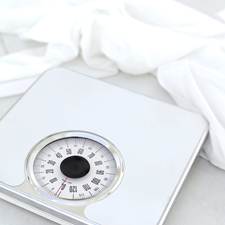 My good friend Tim Sanders often talks about being wary of what you feed your brain and how putting too much of a bad thing (i.e. negative information, etc.) into it can have truly tangible effects. I was starting to notice that I was getting out of shape- mentally- so a couple of months ago I went on a social media diet. I’ve already lost 3 pounds of aggravation, gained significant brain muscle tone and I can fit back into my Mensa membership.
My good friend Tim Sanders often talks about being wary of what you feed your brain and how putting too much of a bad thing (i.e. negative information, etc.) into it can have truly tangible effects. I was starting to notice that I was getting out of shape- mentally- so a couple of months ago I went on a social media diet. I’ve already lost 3 pounds of aggravation, gained significant brain muscle tone and I can fit back into my Mensa membership.
Here’s why I went on my social media diet and why you might want to consider doing so too, as well as a few social media dieting tips.
Over-Exposure to “Stupid”: While there are clearly many fabulous people online with interesting, clever and thought-provoking things to say, the law of averages is also in play, meaning that there are many more that are not up to snuff, so to speak. Part of my diet was pruning these people out of my social media streams and being more selective about what I read. If you are getting frustrated, annoyed or angry on a regular basis, or finding your eyes rolling more than usual, cut back on who and what you are reading and how often.
Also, Tim Sanders suggests that you don’t go online first thing in the morning and that you instead start your day with some positive, nourishing information for your brain to set the tone for your day. That’s helped tremendously.
Needing a Grease & Oil Change: Social media takes multi-tasking and maneuvering to a whole new level. At any given moment, you may find that you are scanning information, clicking links, reading headlines and moving back and forth between tasks. This made my brain go haywire. While I clearly know the difference between and the proper usage of their, there and they’re, I found that often, my brain was so overloaded that it was pulling the wrong word out first. Words like “think” were being typed as “thing” and vice versa and the grammar in some of my tweets was so abysmal that I still cringe when I read them. So, I cut back on the multi-tasking to help restore my brain to a better state of functioning.
Going Broad but Not Deep: Remember when the low-fat diet craze came about? Food manufacturers took out healthy fats and real foods and substituted them with more sugar and chemicals to make them “healthier”. That doesn’t work and I feel the same about social media. Social media has substituted cogent, insightful information for headlines and quick facts, which may make you feel full, but aren’t really good for you. I am being much more selective about what I am reading and carving out more time for long-form reading, like books and full length articles, to go deep into subjects. During my diet, I have read The Black Swan and Too Big to Fail and re-read Liar’s Poker, allowing for some truly insightful thinking and analysis.
Priorities Need Prioritization: Getting enraptured in social media means less time to spend with those individuals who are important to you- family, longstanding friends and colleagues and even social media friends that deserve more than 140 characters. It’s important to strike a balance. It’s claimed that you become an amalgamation of sorts of the six people with whom you spend the most time, so choose carefully and be aware of where and with whom you are spending that time.
Now, dieting doesn’t mean starving or eliminating, it’s much more about moderation. However, moderation has never really been “my thing”- I am more of an all or nothing kind of gal, a nice way of saying that I have an addictive or highly consumptive personality. If you can relate to that, you may find that like me, you need to fight that natural tendency when it comes to social media. So, here are some quick things you can do to help you with your social media diet:
1- Stop following or interacting with anyone who irks you- regardless of whether they may have some good information from time to time; implement a no-asshole rule, even if the asshole might be clever every once in a while;
2- Try to avoid going online first thing in the morning or last thing at night before bed;
3- Set up a schedule with when and for how long you are going to use social media;
4- Before reading any link, ask yourself whether the information is really potentially useful or entertaining;
5- Go back to reading more long form information, like books, and have thoughtful discussions about them or take notes and really analyze and apply the information; and
6- Spend more time engaging offline or in deeper ways with your most valued friends and contacts
Like with any diet, results will vary, but if you commit yourself, you too can have the body mind that you always wanted.

